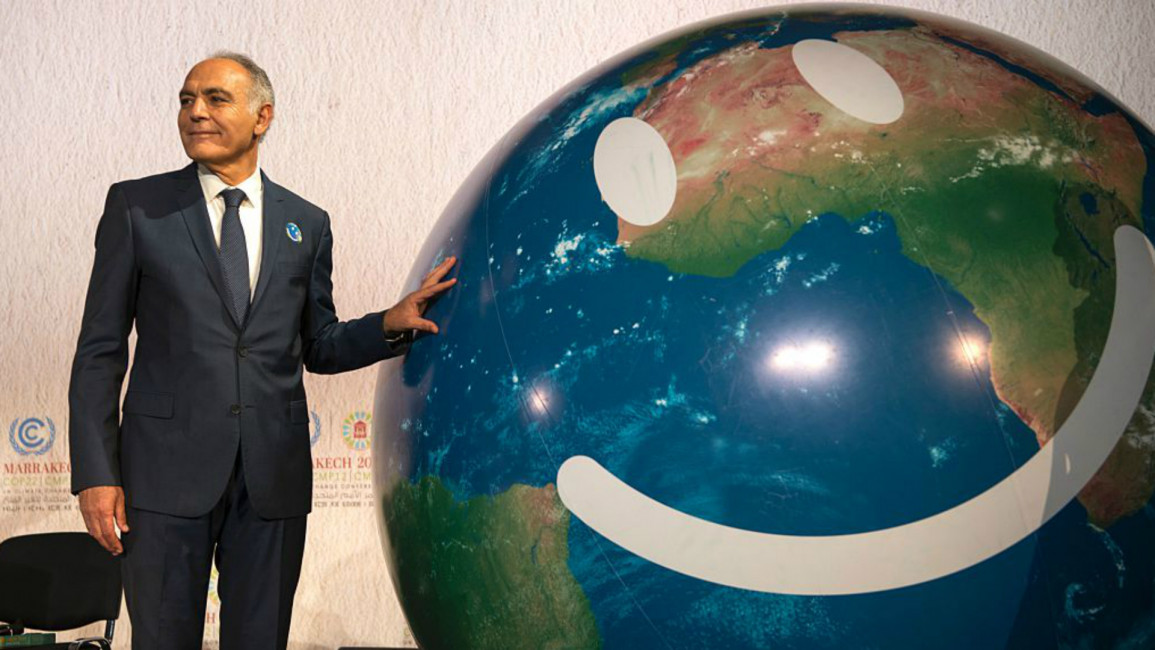
COP22: From rhetoric to action
The COP21, held in Paris in 2015, was heralded as "the first universal climate agreement".
The Paris agreement that came out of it, "limits temperature increases to less than two degrees (1.5 degrees between now and the end of the century), authorises funding of up to $100 billion to adapt economies; particularly in the countries most severely affected by the climate crisis, and re-directs the global economy towards a low-carbon model."
The COP22, described as "the COP of action" aims to implement the decisions taken in Paris.
One of the slogans of the revolutions that shook parts of the Arab world in 2011 was "bread, freedom and social justice".
The demand for agricultural products from the region has effectively risen six-fold in the last 50 years, with supply unable to meet demand, according to the French National Institute for Agricultural Research (INRA).
Food dependency has increased: In the year of the revolts, 40 percent of the region's supply (in terms of calorific value) relied on international markets.
This is the context that sparked the "Arab Revolutions" and the proliferation of so-called terrorist groups; a context characterised by talk of hunger, the pillaging of resources by multinational corporations and the world's dominant economies, and the irreversible consequences of climate change.
This crisis is not the "tragedy", "curse" or "revenge of nature" it is often referred to in de-politicised discourse. According to the Intergovernmental Panel on Climate Change (IPCC), it is the direct result of human decisions.
 |
One of the slogans of the revolutions that shook parts of the Arab world in 2011 was 'bread, freedom and social justice' |  |
The first to be affected, the countries of the South have been the first to organise: While the "North" slowly wakes up to the gravity of the situation, in the people of the "South", are dying.
"The wealth of Europe and the United States was founded on the exploitation of entire continents and populations", the Algerian researcher Hamza Hamouchene told Orient XXI. "They've exported an economic model based on capitalism and extractivism, and imposed it on the whole world. They've used colonialism, structural adjustment programmes and free trade agreements to enrich themselves."
Industrialised countries, though historically responsible for 80 percent of global warming, now seek to transfer responsibility to the countries of the South. The problem of climate change reinforces power imbalances. The COP negotiations do the same. In response, citizen-led initiatives are increasing.
We profile some of these initiatives in this series. Ahmed Sawan visits Minya to find out how agroecology could support peasants neglected by the Egyptian state. Across the border, Palestinians faced with Israel's colonisation of land and water resources are already using the system.
Water is a vital and threatened resource across the entire region. Sana Sbouai investigates conditions and civil society projects in Tunisia, Algeria and Morocco. Pelin Cegiz focusses on the Ilisu dam project in Turkey which threatens the Mesopotamian Marshes on the Iraqi side, as well as internationally significant Islamic heritage sites on the Turkish side.
 |
Industrialised countries, though historically responsible for 80 percent of global warming, now seek to transfer responsibility |  |
In his piece, Akram Belkaid explores approaches to ecological questions in the wealthy Gulf States. Predictions suggest climate change could make these areas uninhabitable and impact the pilgrimage to Mecca, the fifth pillar of Islam.
Salaheddine Lemaizi investigates working conditions in the mines of Morocco in her contribution. In the final article, Warda Mohamed provides a global overview of the links between the climate crisis, the monopolisation and destruction of resources and armed conflict.
For the mobilised, only a global response delivered through initiatives that are both local and inter-connected can offer a solution. The climate problem overlaps with many other problems.
"Responses to climate change need to address issues of race, class, gender, and the history of colonial domination and capitalist exploitation," says Hamza Hamouchene.
He also highlights the question of "ecological debt and reparation." The activists are in no doubt that salvation will not come from those who stand to profit from the food crisis.
This series of articles was created by Warda Mohamed for Orient XXI and Alice Champseix for CCFD-Terre Solidaire. We thank all the contributors.
Warda Mohamed is a journalist and editor of Orient XXI. She also works with other publications such as Le Monde Diplomatique, and is based in Paris.
Follow her on Twitter: @WardaMD
Opinions expressed in this article remain those of the author and do not necessarily represent those of The New Arab, its editorial board or staff.
A version of this article was previously published by our partners at Orient XXI.




